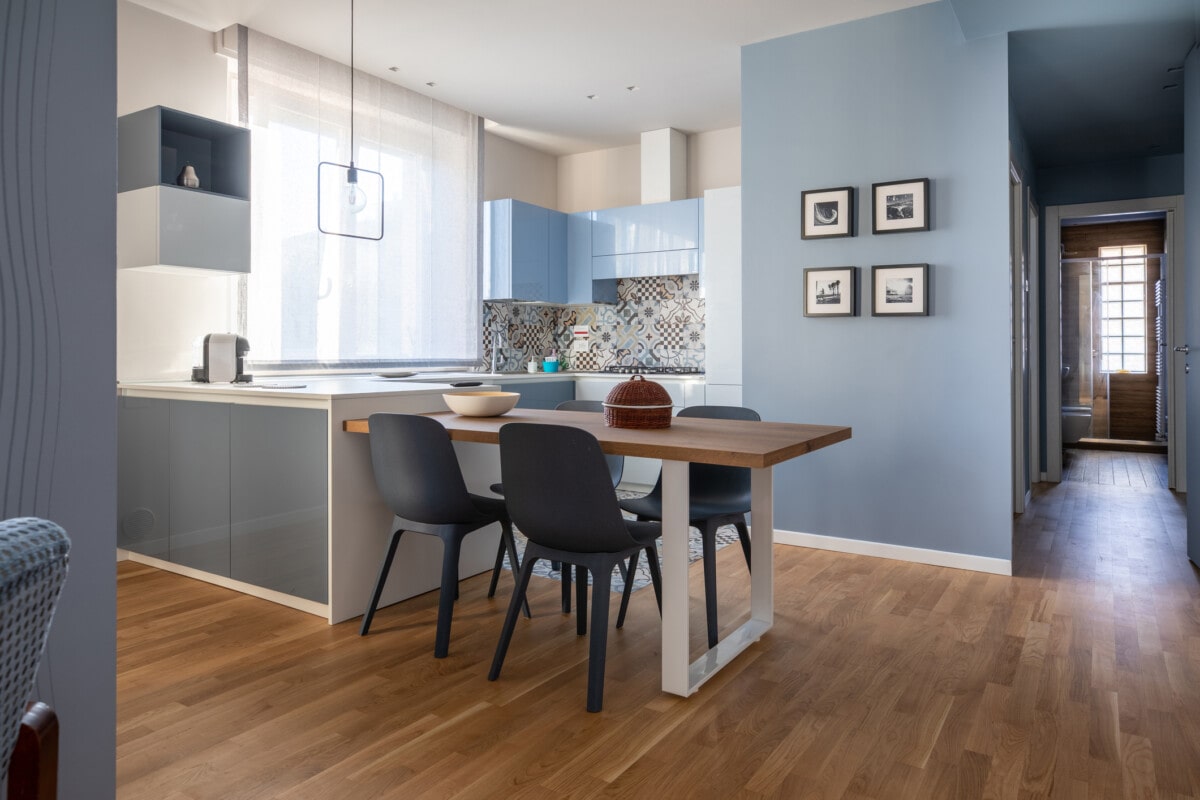Renting a condominium is a gratifying endeavor that can offset your ownership expenses and offer a constant stream of income. Nevertheless, it’s not almost discovering an occupant and handing over the secrets. To maximize this chance, you require to browse a series of factors to consider, from comprehending condominium association guidelines to marketing your residential or commercial property efficiently.
In this Redfin short article, we’ll take you through the ins and outs of leasing a condominium, equipping you with the understanding and methods you require to end up being an effective property owner Whether you wish to rent your condominium in Chicago, Tallahassee, or similar to to read more, keep reading to find the secrets to condo rental success.
What you require to understand prior to renting a condominium
Prior to renting a condominium, there are numerous vital aspects to think about. Primarily, acquaint yourself with the guidelines and guidelines of the condominium association or house owners’ association (HOA) governing your residential or commercial property, as they might have particular requirements or limitations associated with renting systems. Furthermore, examine your monetary preparedness for this venture, consisting of budgeting for prospective repair and maintenance. Finally, consider your location’s market conditions and rental rates to set a competitive rental cost that draws in appropriate occupants while covering your expenses. Being well-prepared and notified about HOA limitations will assist you browse the condominium rental procedure effectively and prevent prospective mistakes.
5 important actions for renting a condominium
1. Comprehend the HOA limitations
Comprehending whether your condominium licenses leasings is vital in the decision-making procedure when pondering leasing your condominium. HOAs have guidelines and guidelines, a few of which might limit and even restrict leasings entirely. It is essential to understand these limitations ahead of time, as they can impact how quickly you can rent your residential or commercial property and the rental earnings you can make. Breaching your HOA guidelines can result in legal effects and conflicts with your condominium association, possibly leading to fines and even the cancellation of your right to lease the system.

2. Research study regional laws and regulations
Various towns typically have particular guidelines about rental residential or commercial properties, covering elements such as occupant rights, residential or commercial property examinations, licensing, and security requirements. Disregarding or ignoring these legal responsibilities can result in legal problem, fines, or expulsion orders. By sticking to regional laws, you’ll guarantee you’re running within bounds of the law, while likewise developing a trustworthy and clear rental relationship with your occupants. This due diligence assists safeguard your financial investment, reduces prospective conflicts, and cultivates a
3. Make certain you have the right house owners insurance coverage
When renting your condominium, securing your residential or commercial property and safeguarding yourself from prospective liabilities is critical. Selecting the best insurance protection is a vital action in this procedure. Standard property owner’s insurance coverage might not cover damages or events that develop from having an occupant. For that reason, it’s important to check out landlord-specific insurance plan that accommodate rental residential or commercial properties. These policies not just safeguard the physical structure of the condominium however likewise offer protection for prospective lost rental earnings and legal charges if a disagreement emerges.

4. Work with a property legal representative
Realty deals typically include intricate legal agreements, such as lease arrangements, and can differ substantially depending upon regional laws and guidelines. A knowledgeable legal representative can examine, draft, or personalize legal files to guarantee they are certified with regional laws, safeguard your interests, and address prospective problems that might develop throughout the rental duration.
5. Prepare your residential or commercial property to lease
When preparing your condominium for lease, comprehensive preparation is essential to bring in quality occupants and guaranteeing an effective rental experience. Start by completely cleaning up and decluttering the area, making essential repair work, and guaranteeing all home appliances and systems remain in working order. A fresh coat of paint and small upgrades can likewise improve its appeal. Think About staging the condominium to display its prospective and develop an inviting environment. Set a competitive rental cost based upon marketing research and develop an in-depth and sincere residential or commercial property description highlighting its functions and facilities. Lastly, develop a prepare for residential or commercial property upkeep and emergency situations and be prepared to react without delay to queries and schedule watchings.

Pros of renting a condominium
Rental earnings
Getting rental earnings by renting your house offers a constant and possibly rewarding source of capital for homeowner. This earnings can assist cover home loan payments, balance out condominium association charges, and even yield a revenue.
Tax advantages
Among the engaging benefits of renting your condominium is the prospective tax advantages it can provide. Rental homeowner are typically qualified for numerous tax reductions. For example, you can normally subtract costs associated with preserving and handling your condominium, such as repair work expenses, residential or commercial property management charges, and even some travel costs associated with residential or commercial property upkeep or occupant management. Furthermore, the interest on your home loan and real estate tax can typically be crossed out.
Property gratitude
By hanging on to the condominium while it values, you can possibly develop substantial wealth as the residential or commercial property’s market price grows. This long-lasting financial investment method permits you to take advantage of the residential or commercial property’s capital gratitude and increase their total net worth throughout the years.
Versatility
Renting your condominium uses an important degree of versatility in your living plans. If you require to transfer briefly for work, individual factors, or just want to check out a various location, you can do so while still maintaining ownership of your condominium. This versatility permits you to adjust to altering life scenarios without the trouble of offering your residential or commercial property and offers you with the alternative to go back to your condominium.

Cons of renting a condominium
Renter problems
Renting a condominium can provide difficulties, such as occupant problems, which can be a substantial disadvantage. Handling bothersome occupants, consisting of late lease payments, residential or commercial property damage, or lease infractions, can be a lengthy and difficult obligation for property owners. Handling and solving these problems efficiently needs strong interaction and in some cases legal action, making tenant-related issues a drawback of renting a condominium.
Residential or commercial property wear and tear
Even accountable occupants can add to the regular destruction of the condominium with time, requiring routine repair and maintenance. This continuous maintenance can be a monetary and logistical problem for property owners, possibly affecting their total financial investment returns.

Jobs
Jobs are another prospective disadvantage of renting a condominium. When the condominium is empty, you do not create rental earnings, affecting their capital. Discovering trustworthy occupants can in some cases take some time, and throughout job durations, you need to cover continuous costs like home loan payments and condominium association charges expense.
HOA limitations
HOA limitations can provide a substantial obstacle when thinking about leasing a condominium. Lots of HOAs have stringent guidelines and guidelines relating to leasings, consisting of restrictions on the variety of systems that can be leased, rental periods, and occupant screening requirements. These limitations can restrict a condominium owner’s capability to rent their residential or commercial property or make it more troublesome. Furthermore, HOA charges and evaluations might increase with time, impacting the residential or commercial property’s total success as a rental financial investment.
Does leasing your condominium impact taxes?
Leasing your condominium can affect real estate tax, although the specifics differ by place and regional tax laws. When you rent your condominium, it might be categorized in a different way for tax functions, such as altering from a main house to a financial investment residential or commercial property. This reclassification can impact real estate tax rates and exemptions.
In Addition, when you rent your condominium, the rental earnings you get is normally thought about gross income, which implies you’ll require to report it on your income tax return. Nevertheless, you can likewise subtract different costs connected with preserving and handling the residential or commercial property, such as repair work expenses, residential or commercial property management charges, home loan interest, and real estate tax.
Renting a condominium: The bottom line
By following the actions described in this guide, you can with confidence browse the intricacies of leasing your condominium. From preparing your residential or commercial property to comprehending legal responsibilities and picking the best occupants, every element of the procedure is vital in guaranteeing an effective and rewarding rental experience.